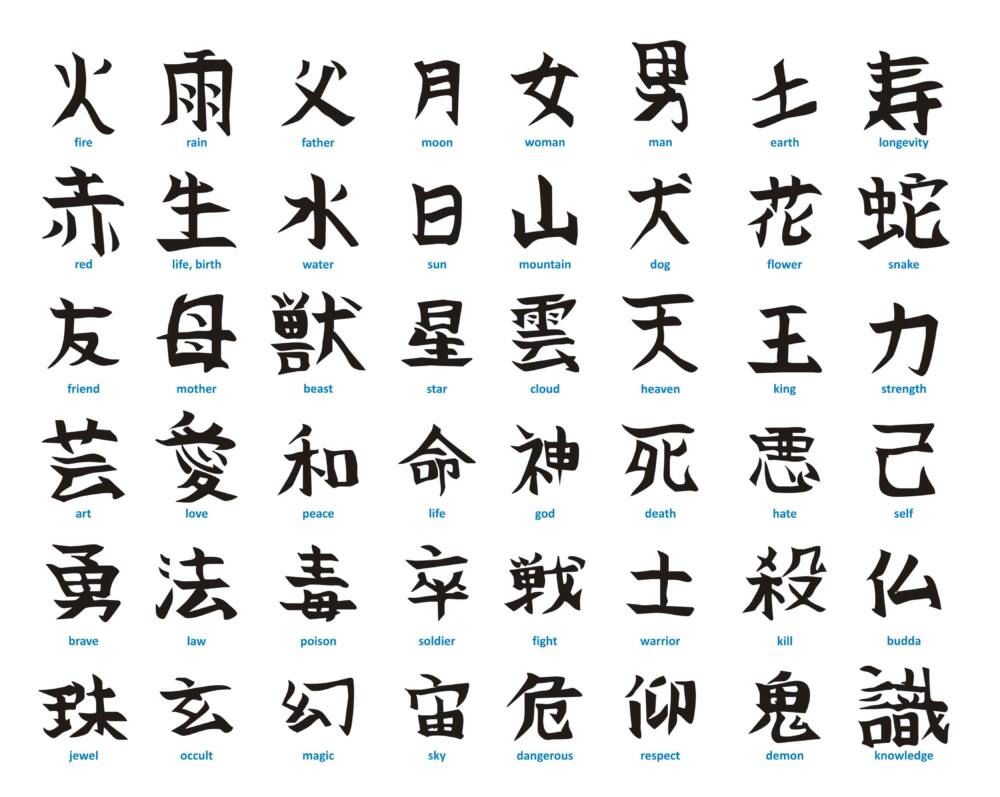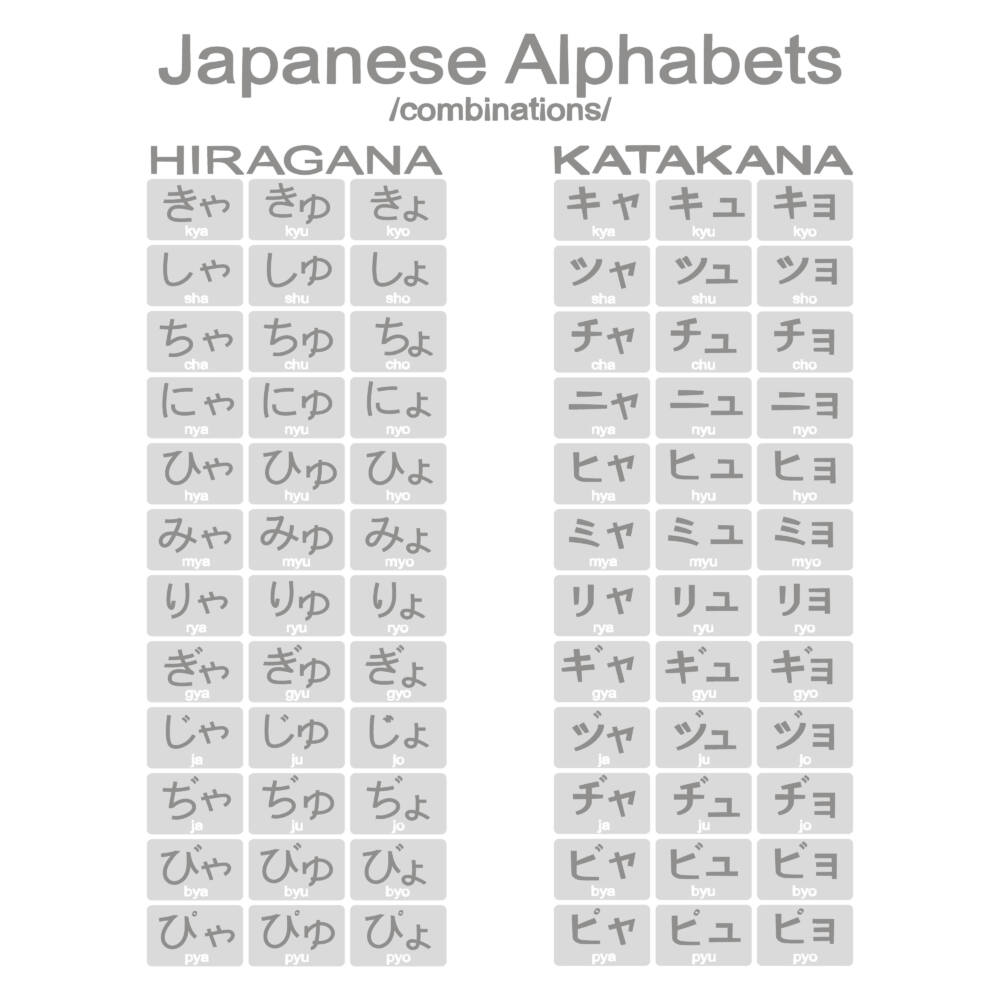Ever wondered why learning Japanese is difficult? Read on to find out the intricacies of Japanese language learning!
Dreaming of mastering Japanese? Be prepared for a challenge! Unlike familiar European languages, Japanese features unique writing systems, complex grammar, and a focus on politeness. Dive in to explore the hurdles that await you on your Japanese learning journey!
Page Contents
Why Learning Japanese Is Difficult?
Japanese presents hurdles for English speakers. It uses multiple writing systems, has a different sentence structure (verb last!), and a complex politeness system. Don’t despair though, with dedication it’s rewarding!
Why is Japanese considered to be difficult?
Here are some of the most common reasons why Japanese is considered to be difficult to learn:
Kanji Can Look Complex (And Not To Mention Intimidating)


The Japanese writing system has adopted Chinese characters known as Kanji. If you want to be fluent in Japanese, you will need to be able to read approximately 2,000 Kanji characters. And it’s not all mugging up because each kanji character may have multiple readings depending on its usage.
- Related: Basic Japanese Greetings to Use
- Related: Basic Japanese Words To Use
Japanese Grammar May Seem Confusing
There is a lot of grammar involved in the English language. The grammar used in Japanese is completely reversed. A very simple English sentence “I am waiting for my friend to come” becomes “I friend come waiting” in Japanese.
So, you can see that to a native English speaker or to somebody who is fluent in English, this can be extremely confusing. The thing is that in Japanese, the verb is usually placed at the end of the sentence. You may need a lot of time to get used to this rule of grammar.
Related: Easy Japanese Phrases To Use At A Restaurant
Use of Particles in Japanese
You will see that the Japanese language makes heavy use of particles. This is an essential part of Japanese grammar. These particles are, in many ways, similar to the prepositions that are used in English grammar. This grammar structure is almost similar to what the Koreans use, and so it is comparatively easier for Koreans to learn Japanese.
Rules of Honorifics in Japanese
Honorifics are quite commonly used in Japanese. The use of these shows respect. The use of this is also not common to those who have always spoken English. It is both grammatically and culturally unfamiliar to others.
The rules are also quite complex and it will take you quite a long time to get used to them. Also, the use of honorifics depends on several factors. You need to use them according to the hierarchical position of your interlocutor. You also need to be mindful of the setting in which the conversation is happening.
Related: Easy Japanese For Ordering Food
Multiple Writing Systems
There are two writing systems being followed in Japan – hiragana, and katakana. Each of these writing symbols contains 46 syllables. This means that before you can even properly pronounce your first system, you need to face a lot of hurdles.

Why Learning Japanese Is Easier Than You Think?
With all of this being said, there are also several factors that make learning Japanese quite easy for you. I hope that all these factors motivate you to not give up on your journey to learning Japanese.
Japanese Language Has A Lot Of Words That Have Been Borrowed From English
If you are fluent in English, you may be glad to know that there are several words in Japan that have been taken from the English dictionary. Thanks to your prior knowledge of the English language, you already have an upper hand over non-English speakers.
There are thousands of words in Japanese that have been taken from English, and which you are already aware of. These words that have been taken from English and other foreign languages are known as ‘gairaigo’.
With this knowledge, you can communicate a lot more than you think. This is true even if you have zero knowledge of English grammar or of Kanji characters.
Here are a few words that have been borrowed from the English language –
- Mic – maiku
- Table – teeburu
- Internet – intaanetto
- Romantic – romanchikku
- Driveshaft – doraibushafuto
- Camera – kamera
- Hotel – hoteru
- Computer – kyonpyuta
There are thousands of other such similar words. You will, however, have to learn the Japanified pronunciation of these words. But it will not be too difficult as the phonetic patterns are quite predictable and consistent. The only thing you need to do here is that you need to gain some knowledge of Katakana, which is not too difficult. You can do this easily over the weekend. You also need to know the way in which English words are transferred to Japanese. There are a few patterns to this, learning which can help you a great deal.
Related: All The Japanese For Washing Machine
No Noun Gender Roles in Japan
You really do not have genders in Japan that you need to learn. There is no need to know which noun is masculine and which is feminine. There are no rules like all the der, die, das rules in Germany. There are also no neuter nouns here.
Easy Pronunciation
You may not agree with me here, but trust me, once you get the hang of a handful of rules, you will easily be able to pronounce Japanese. The Japanese language only has about a hundred sounds, which is why Japanese people find it difficult to learn a foreign language.
This, however, is not the case with you. Almost all of these sounds are covered in the English language, making sure your journey of Japanese learning is easy. The language is also quite flat, so you do not have to worry about different intonations.
You Don’t Have To Learn Kanji in Writing
Yes, you only need to be able to read Kanji characters and not write them. The younger generations in Japan are not fluent with it either because of the dominance of computers and mobile phones.
Thanks to the advancement in technology, you can simply type away in hiragana or romaji and the device will turn them into kanji characters automatically.
If you can read Kanji well, you will be able to get out of most situations. However, you may realize that writing each kanji character over and over again is the best way to memorize these characters.
Japanese Grammar Is Not As Difficult As It Seems
Okay, so I agree that there are tons of rules in Japanese grammar, including particles that can be tough to memorize. But if we set that and the three writing scripts aside, it is not really that difficult to grasp Japanese grammar.
The reason why learners of the Japanese language find grammar difficult is that all the rules are quite different from the rules of English grammar.
But there are also so many things that make Japanese grammar easier to grasp. For instance, there is no concept of plurals in the Japanese language. This means that you do not need to spend hours wondering the plural form of words.
Subjects and Objects Can Be Left Out
Unlike in the English language where you need to make sure you are adding proper subjects and objects to your sentences, you can skip that in the Japanese language. However, this only holds true if what you are saying is clear in the context.
This means that if the speaker and the listener know what they are talking about, there is no need to add subjects and objects.
For instance, if someone asks if you have eaten dinner, you can simply reply by saying ‘tabeta’, which is the past tense of ‘taberu’. There is no need to add ‘I’ and ‘dinner’ since both parties are aware of the context.
Knowing Kanji Characters Can Help Debunk Meanings Of New Words
Yes, if you are quite fluent with your Kanji characters, you can easily find out the meanings of words you have never heard of before. This is true for all compound words. For example, if you encounter the word 外国人 (gaikokujin) for the very first time and you do not have a dictionary at hand, do not sweat.
If you have a basic knowledge of Kanji characters, you can easily find out the meaning of the word. In Kanji, 外 means outside, 国 means country, and 人 means person. So, by combining these three words, you can easily figure out that the word gaikokujin means a foreigner.
How long does it take to learn Japanese?
The Foreign Service Institute (FSI) estimates that it takes 88 weeks (2,200 hours) of study to achieve “general professional proficiency” in Japanese. This is considered to be a B2 level on the Common European Framework of Reference for Languages (CEFR). To achieve “full professional proficiency” (C1 level), the FSI estimates that it takes 112 weeks (2,700 hours) of study.
The amount of time it takes to learn Japanese depends on a number of factors, including your:
- Learning goals: What level of fluency are you aiming for? If you only want to be able to have basic conversations, you can probably learn Japanese in a few months. However, if you want to be able to read and write Japanese fluently, it will take you several years.
- Prior language learning experience: If you already know another language, especially one that is closely related to Japanese (such as Korean or Chinese), you will have an easier time learning Japanese.
- Dedication: How much time are you willing to dedicate to learning Japanese? If you can study for several hours each day, you will learn Japanese much faster than if you can only study for a few hours each week.
How hard is it actually to learn Japanese?
Japanese is generally considered to be a difficult language for native English speakers to learn. This is due to a number of factors, including The writing system, grammar, vocabulary.
However, it is important to remember that difficulty is subjective. Some people may find Japanese to be very difficult to learn, while others may find it to be relatively easy. It also depends on your learning style and motivation. If you are highly motivated and willing to put in the effort, you can learn Japanese, even if it is challenging.
Is 1 year enough to learn Japanese?
It is possible to learn Japanese in 1 year, but it depends on your learning goals and how much time you are willing to dedicate to studying. If you are only aiming to be able to have basic conversations, you can probably learn Japanese in a few months. However, if you want to be able to read and write Japanese fluently, it will take you several years.
Is Japanese hard for English speakers?
Yes, Japanese is generally considered to be a challenging language for English speakers to learn. There are several reasons for this:
- Writing System: Japanese uses three writing scripts – Kanji (logographic characters), Hiragana, and Katakana (both syllabaries). Learning Kanji, which can have multiple readings and meanings, can be especially difficult for English speakers as it requires memorizing a large number of characters.
- Grammar Structure: Japanese sentence structure is quite different from English. It follows a subject-object-verb (SOV) order, which can be unfamiliar and require a shift in thinking.
- Pronunciation: Japanese has a different set of phonetic sounds compared to English, which might require English speakers to practice and get used to new phonemes.
- Politeness Levels: Japanese has a complex system of honorifics and politeness levels that dictate how you address others and yourself based on social context. This adds another layer of complexity to communication.
- Cultural Nuances: Japanese language and culture are deeply intertwined. Understanding cultural context is essential for using the language effectively and appropriately.
- Vocabulary: While some basic vocabulary might be similar due to loanwords, a significant portion of the Japanese vocabulary is unique and might not have clear connections to English.
Learn Japanese, with motivation!
It is not altogether difficult to learn Japanese if you set your heart to it. There are a number of hurdles, but with the right way, you can always overcome them. Start with the basics and then build up from there. Knowing Kanji and the basic rules used in the Japanese language can really help you start conversing with the locals in no time. And no matter what, never let your motivation die down.
Also Read:





